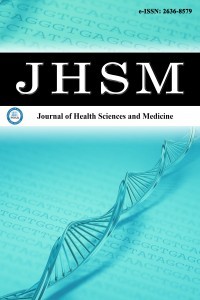1.
World Health Organization: Clinical management of severe acuterespirato ry infection when novel coronavirus (nCoV) infectionis suspected. Available from: https://www.who.int/emergencies/diseases/novel-coronavirus-2019/technical-guidance
2.
Crotti S, Bottino N, Spinelli E: Spontaneous breathing duringveno-venous extracorporeal membrane oxygenation. J ThoracDis. 2018;10(Suppl. 5):S661-669.
3.
Kurihara C, Walter JM, Singer BD, et al. Extracorporeal membraneoxygenation can successfully support patients with severe acuterespiratory distress syndrome in lieu of mechanical ventilation.Crit Care Med. 2018;46(11):e1070-e1073.
4.
Extracorporeal Life Support Organization (ELSO) report in 2018.Available from: https://www.elso.org/
5.
Vieira J, Frakes M, Cohen J, Wilcox S. Extracorporealmembrane oxygenation in transport part 2: complications andtroubleshooting. Air Med J. 2020;39(2):124-132
6.
Lim JKB, Qadri SK, Toh TSW, Lin CB, Mok YH, Lee JH.Extracorporeal membrane oxygenation for severe respiratoryfailure during respiratory epidemics and pandemics: a narrativereview. Ann Acad Med Singap. 2020;49(4):199-214.
7.
Barbaro RP, MacLaren G, Boonstra PS, et al. Extracorporeal LifeSupport Organization. Extracorporeal membrane oxygenationsupport in COVID-19: an international cohort study of theExtracorporeal Life Support Organization registry. Lancet.2020;396(10257):1071-1078.
8.
Combes A, Hajage D, Capellier G, et al. Extracorporeal membraneoxygenation for severe acute respiratory distress syndrome. NEngl J Med. 2018;378(21):1965-1975.
9.
Schmidt M, Hajage D, Lebreton G, et al. Groupe de rechercheclinique en reanimation et soins intensifs du patient en insuffisancerespiratoire aigue (GRC-RESPIRE) Sorbonne Université;Paris-Sorbonne ECMO-COVID investigators. Extracorporealmembrane oxygenation for severe acute respiratory distresssyndrome associated with COVID-19: a retrospective cohortstudy. Lancet Respir Med. 2020;8(11):1121-1131.
10.
Schmidt M, Pham T, Arcadipane A, et al. Mechanical ventilationmanagement during extracorporeal membrane oxygenation foracute respiratory distress syndrome. an international multicenterprospective cohort. Am J Respir Crit Care Med. 2019;200(8):1002-1012.
11.
Henry BM, de Oliveira MHS, Benoit S, Plebani M, Lippi G.Hematologic, biochemical and immune biomarker abnormalitiesassociated with severe illness and mortality in coronavirusdisease 2019 (COVID-19): a meta-analysis. Clin Chem Lab Med.2020;58(7):1021-1028.
12.
Terpos E, Ntanasis-Stathopoulos I, Elalamy I, et al. Hematologicalfindings and complications of COVID-19. Am J Hematol. 2020;95(7):834-847.
13.
Burrell AJC, Lubnow M, Enger TB, et al. The impact of venovenousextracorporeal membrane oxygenation on cytokine levels in patientswith severe acute respiratory distress syndrome: a prospective,observational study. Crit Care Resusc. 2017;19(Suppl 1):37-44.
14.
Jacobs JP, Stammers AH, St Louis J, et al. Extracorporealmembrane oxygenation in the treatment of severe pulmonary andcardiac compromise in coronavirus disease 2019: experience with32 patients. ASAIO J. 2020;66(7):722-730.
15.
Henry BM. COVID-19, ECMO, and lymphopenia: a word ofcaution. Lancet Respir Med. 2020;8(4):e24.
16.
Ruan Q, Yang K, Wang W, Jiang L, Song J. Clinical predictors ofmortality due to COVID-19 based on an analysis of data of 150patients from Wuhan, China. Intensive Care Med. 2020;46(5):846-848.
17.
Mehta P, McAuley DF, Brown M, Sanchez E, Tattersall RS, MansonJJ. HLH Across Speciality Collaboration, UK. COVID-19: considercytokine storm syndromes and immunosuppression. Lancet.2020;395(10229):1033-1034.
18.
Tran A, Fernando SM, Rochwerg B, et al. Prognostic factorsassociated with mortality among patients receiving venovenousextracorporeal membrane oxygenation for COVID-19: asystematic review and meta-analysis. Lancet Respir Med. 2022:S2213-2600(22)00296-X.
19.
Uysal E, Seğmen F, Ulubaşoğlu P, Zengin E.N, Erdem D. Theprogress of chronic renal disease patients followed by the diagnosisof COVID-19 in ICU. J Health Sci Med. 2022;5(5):1447-1452

